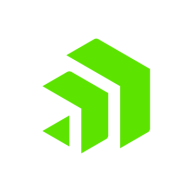

MarkLogic and ScyllaDB are competing in the database market. ScyllaDB has the upper hand in advanced features and performance, while MarkLogic benefits from better pricing and support.
Features: MarkLogic offers robust data management, integrated search, and high availability. It is efficient in handling complex data structures. ScyllaDB focuses on low-latency design, high throughput, and suitability for real-time applications. It excels in performance and scalability.
Ease of Deployment and Customer Service: MarkLogic provides a flexible deployment model with strong customer service, supporting from configuration to operation. ScyllaDB features straightforward deployment and minimal tuning requirements, with efficient support channels. MarkLogic takes a tailored approach, while ScyllaDB emphasizes ease and speed.
Pricing and ROI: MarkLogic has competitive setup costs with quicker ROI due to strong support and integration capabilities. ScyllaDB's higher initial costs are balanced by superior performance and scalability, offering long-term value. MarkLogic is attractive for those seeking cost-effective solutions, ScyllaDB is chosen for its performance despite higher upfront investments.


ScyllaDB is an open-source, distributed NoSQL wide-column datastore (a highly scalable NoSQL database), known for its compatibility with Apache Cassandra, and for supporting the same protocols as Cassandra (CQL and Thrift) and the same file formats (SSTable). ScyllaDB is designed for high throughput and low latency, making it suitable for data-intensive applications. Its architecture allows it to deliver remarkable performance on a massive scale, utilizing modern multi-core servers to their fullest potential
ScyllaDB utilizes a similar architecture, data format, and query language as Apache Cassandra, providing compatibility while dramatically improving speed and scalability.
The key advantages of ScyllaDB include its rewritten C++ implementation that eliminates Cassandra's expensive Java garbage collection pauses, built-in caching for fast access to frequently used data, and shard-aware drivers for direct routing of requests. This enables it to fully leverage modern multi-core servers for massive parallelism. The community is active and the latest major release, ScyllaDB Enterprise 2023.1.0 LTS, incorporates over 5,000 code commits focused on enhancing capabilities.
ScyllaDB supports wide-column data modeling for fast read performance at scale. It includes integrated monitoring and management tools to track database health and performance. For organizations looking to boost speed and reduce costs for NoSQL workloads, ScyllaDB offers a drop-in replacement for Cassandra that delivers lower latency, higher throughput, and increased scalability with fewer nodes. Its seamless migration path makes switching from Cassandra seamless, requiring minimal code changes.
We monitor all NoSQL Databases reviews to prevent fraudulent reviews and keep review quality high. We do not post reviews by company employees or direct competitors. We validate each review for authenticity via cross-reference with LinkedIn, and personal follow-up with the reviewer when necessary.